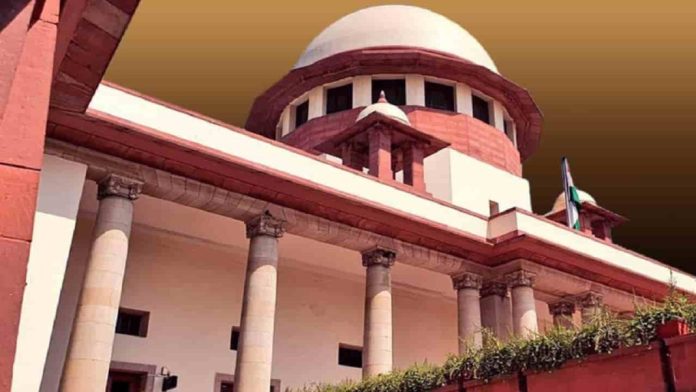The Supreme Court on Friday reserved its judgement on a batch of Public Interest Litigations (PILs) seeking a Court-monitored investigation into the allegations made by US-based short-selling firm Hindenburg Research against the Adani group of companies regarding violation of stock market regulations.
The matter pertained to a report published by the short-selling firm Hindenburg Research, which claimed that Gujarat-based industrialist Gautam Adani had inflated its share prices.
The publication of this report led to a sharp fall in the share value of various Adani companies, reportedly to the tune of 100 billion dollars.
This was followed by several petitioners approaching the Apex Court, including a plea which alleged that changes to the SEBI Act had provided a ‘shield and an excuse’ for the Adani Group’s regulatory contraventions and market manipulations to remain undetected.
The Supreme Court asked SEBI to independently investigate the matter earlier this year. The top court of the country had also constituted an expert committee headed by retired Justice A.M. Sapre to look into the matter.
In its report released in May, the expert committee did not find any prima facie lapse on part of SEBI in the matter.
The case was heard by the Bench of Chief Justice of India D.Y. Chandrachud, Justice J.B. Pardiwala and Justice Manoj Misra for nearly two hours today.
During the hearing, the CJI made an oral observation that the Securities Exchange Board of India (SEBI) should take steps to protect the stock market from volatility caused by instances like short-selling. He said that the market regulator should take steps to ensure that instances leading to the loss of investor wealth were obviated in the future.
The CJI further expressed its displeasure over the allegations made by petitioners against the impartiality of members of the Expert Committee.
Appearing for one of the petitioners, Advocate Prashant Bhushan raised questions regarding the probe done by SEBI.
In response, the Apex Court said that SEBI was a statutory body exclusively entrusted with investigating stock market manipulation. It asked whether it was proper for a court without any proper material to say that it did not trust SEBI and will form its own SIT? This has to be done with much calibration, noted the Bench.
Appearing for SEBI, Solicitor General of India Tushar Mehta said that the agency was not seeking any extension of time.
He apprised the Court that out of the 24 cases of suspected transactions, the investigation of 22 was over.
The quasi-judicial process for inquiry into these cases had started and for the remaining two cases, information from foreign regulators was needed. SEBI had been in consultation with them, he added.
The CJI said that the concern which led the Court to intervene was the extreme volatility caused in the stock market, resulting from short-selling.
It asked about the planning of SEBI with respect to the tightening of regulations and for the protection of investors.
The SG said that these were larger issues which were under the consideration of the market regulator. SEBI was not objecting to the suggestions given by the Court-constituted Expert Committee on improving the regulatory framework, he added.
Regarding how much of the regulatory changes will fall within the framework of the Ministry of Finance and the SEBI, the SG replied that some aspects of rule-making will be within the domain of the Union Government and some others will be within the SEBI’s domain.
As per the SG, one of the petitioners had filed an application questioning the neutrality of certain members of the expert committee constituted by the Court.
Asserting that the application was not at all justified, the SG said that a ‘conscious’ decision was taken not to dignify the application by filing a reply.
He further apprised the Bench that the petitioner also sought an investigation into a report by Organised Crime and Corruption Reporting Project (OCCRP), which the SG called a ‘local NGO’.
The SG said that though the OCCRP was asked to share the details, the organisation refused to do so saying that sources cannot be disclosed.
Regarding the contempt petition filed by another petitioner against SEBI, the SG said that the regulator had sought for extension of 15 days and since the SEBI has initiated the quasi-judicial process, the non-compliance was only for just 10 days.


